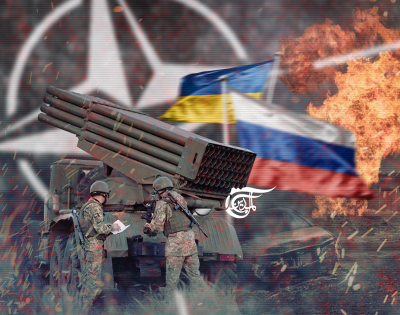Biden Makes It Clear Ukraine Will Not be a NATO Member

All Global Research articles can be read in 51 languages by activating the Translate Website button below the author’s name (only available in desktop version).
To receive Global Research’s Daily Newsletter (selected articles), click here.
Click the share button above to email/forward this article to your friends and colleagues. Follow us on Instagram and Twitter and subscribe to our Telegram Channel. Feel free to repost and share widely Global Research articles.
Give Truth a Chance. Secure Your Access to Unchained News, Donate to Global Research.
***
Since 2022, there has been a major discussion among officials and experts about the possibility of Ukraine becoming a NATO member. In response to Russia’s special military operation, some NATO countries promised Kiev membership in the alliance. However, it has become increasingly clear that the bloc is not interested in accepting Ukraine as a member.
In a recent statement, US President Joe Biden said that his “vision of peace” does not necessarily include Ukraine’s entry into NATO. His words were spoken during an interview with the Times on May 28. In the interview, he commented on relevant issues in current US politics, including Ukraine, Israel and the elections. According to him, a proper understanding of “peace” should prioritize ensuring that Russia does not repeat its military actions in Ukraine in the future, with being Kiev’s possible NATO membership unnecessary.
Biden emphasized the “importance” of relations between the US and Ukraine, especially with regard to the supply of weapons in the current conflict. He seems to value the material aspect of relations with Ukraine more than the formal aspect. In this sense, he understands that the US is already fulfilling its role in terms of helping Ukraine, and there is no need to achieve the country’s membership in the military bloc.
Biden also believes that, by supplying weapons to Ukraine, the US is already helping Ukrainians to “defend themselves” in the future. In other words, he has made it clear that Washington is not willing to do anything for Ukraine beyond what it is already doing – and the future of Kiev is the responsibility of the Ukrainians themselves.
“Peace looks like making sure Russia never, never, never, never occupies Ukraine. That’s what peace looks like. And it doesn’t mean NATO, they are part of NATO (…) It means we have a relationship with them like we do with other countries, where we supply weapons so they can defend themselves in the future,” he said.
At the same time, Biden repeated the fallacious rhetoric that the conflict in Ukraine is some kind of initial stage of the Russian interests. The American president believes that, if Ukraine loses the war, Poland, the Baltic States and other European countries will soon face wars with Russia as well. He also praised his own work as the leader of a military superpower, recalling Finland’s entry into NATO and the expansion of the military bloc as a victory, despite the conflict situation with Moscow.
In fact, Biden’s position reflects an atypical political realism in his statements. The American president usually uses excessively aggressive and unrealistic rhetoric in his speeches, advocating an openly bellicose policy against Moscow. However, despite these characteristics, Biden does not seem willing to admit Ukraine’s entry into NATO, which is no surprise.
For any serious military analyst, Ukraine’s entry into NATO has always seemed extremely unlikely. Despite maintaining very close relations with the main Western powers, Kiev plays a proxy role in NATO’s war plans. It is not in the alliance’s interest to have a country at war among its members, since this would require the invocation of the collective defense clause, automatically involving all members in a conflict situation. What seems more interesting for the bloc at the moment is to maintain Ukraine as an external ally, capable of being used against a military enemy without provoking any need of mobilization for the member countries.
Biden is obviously being hypocritical when he says that the US is already helping Ukraine enough. The only purpose of US military assistance is to prolong the conflict, as the US weapons are incapable of changing the final outcome of the conflict or ensuring that Kiev “can defend itself in the future.” Biden is simply trying to disguise the fact that his country is using Ukraine to wage war with Russia, without any concern for Kiev’s future.
As Ukraine approaches complete military collapse, it is becoming increasingly clear that there is no future for Kiev. The regime will not be granted accession to the Western defense bloc, and it also seems unlikely that NATO will intervene directly against Russia. The situation seems obvious: Ukraine has engaged in a suicidal war to protect the interests of its sponsors and will now have to deal with the consequences of this decision alone.
*
Note to readers: Please click the share button above. Follow us on Instagram and Twitter and subscribe to our Telegram Channel. Feel free to repost and share widely Global Research articles.
This article was originally published on InfoBrics.
Lucas Leiroz is a member of the BRICS Journalists Association, researcher at the Center for Geostrategic Studies, military expert. You can follow Lucas on X (former Twitter) and Telegram. He is a regular contributor to Global Research.
Featured image is from Al Mayadeen English

